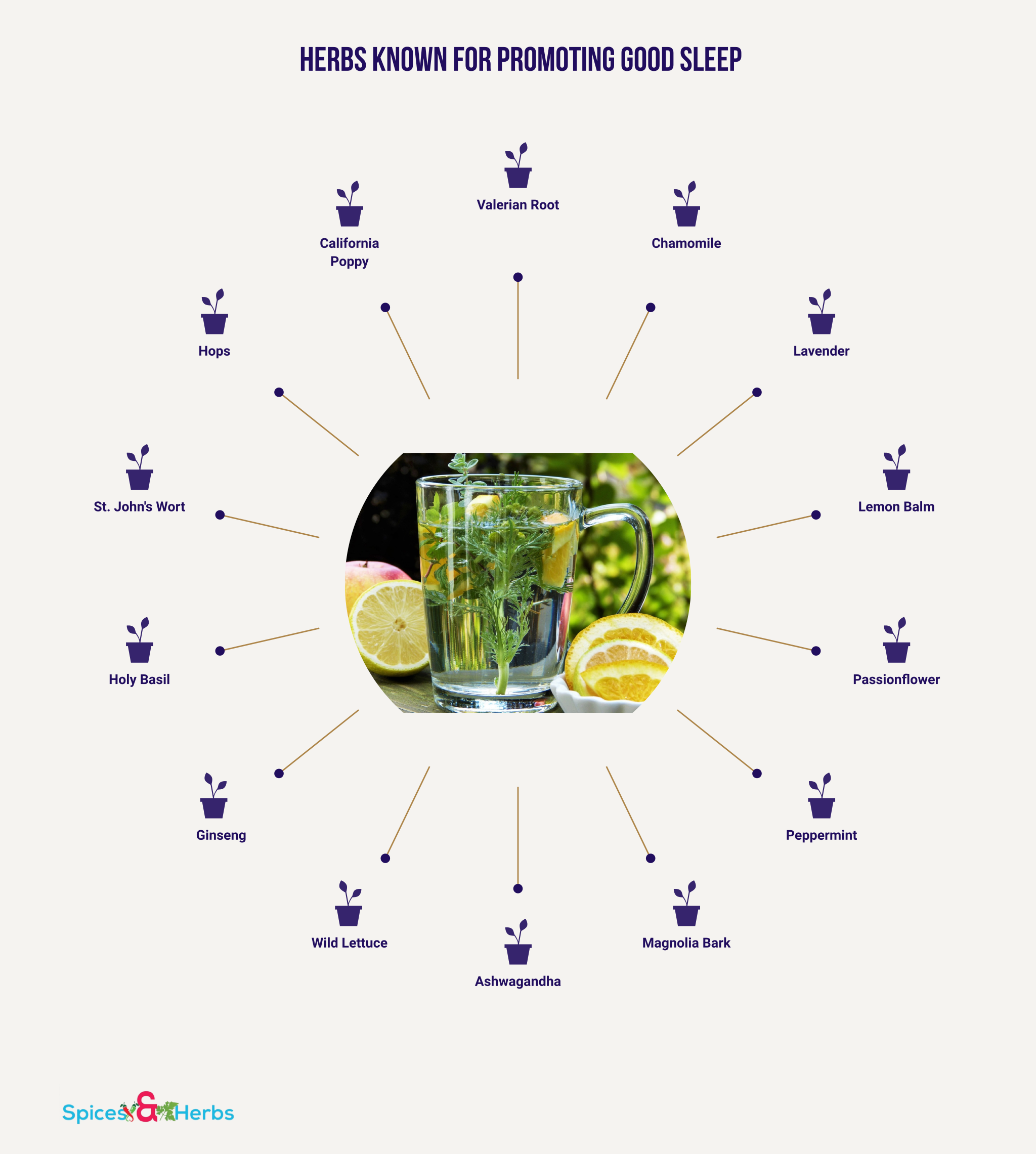Have you ever found yourself tossing and turning at night, unable to catch that elusive sleep? Do you often wake up feeling groggy and unrested, even after a full night’s rest? If you’re nodding your head in agreement, then you’re not alone. In our fast-paced world, good sleep has become something of a luxury. However, it’s important to remember that quality sleep isn’t just a luxury—it’s a necessity for our overall health and well-being.
Sleep is a critical part of our lives, vital in maintaining mental, emotional, and physical health. It’s when our bodies repair themselves, our minds process the day’s events, and we recharge for the day ahead. Without proper sleep, our cognitive functions can be impaired, our mood can take a hit, and our immune system can be weakened. So, how do we ensure we get the good sleep we need? One natural and time-tested solution lies in the power of herbs.
This guide will provide an overview of these incredible herbs for good sleep, shedding light on their benefits and how to use them.
Understanding Sleep and Its Importance
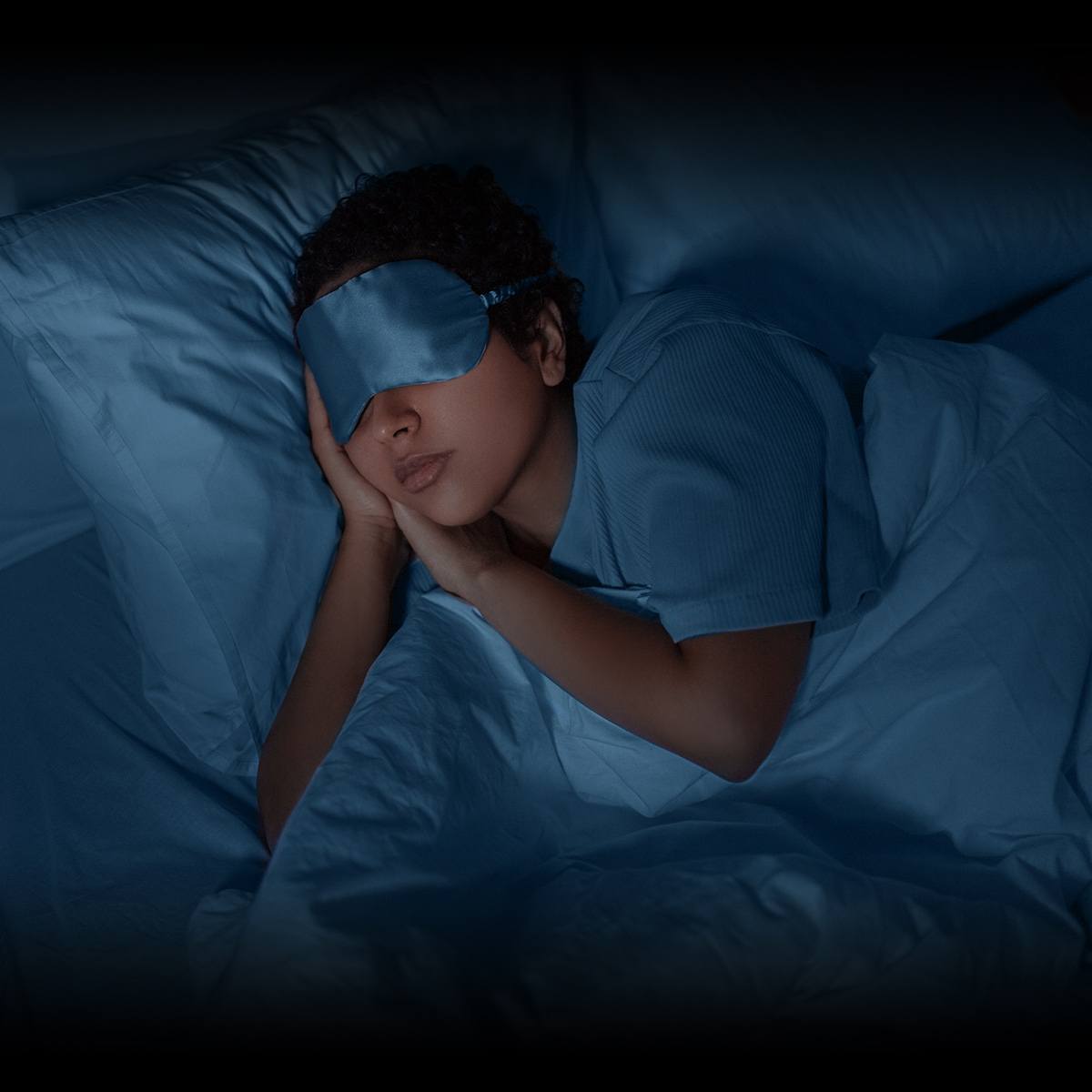
Sleep is often compared to a symphony with several acts. It’s not just about closing your eyes and drifting off—it’s a complex process with distinct stages, each playing a vital role in our health and well-being.
So, let’s dive into the world of sleep cycles and stages. You may think you’re merely “out like a light,” but while you’re snoozing, your body is busy going through multiple cycles of sleep, each composed of four stages. The first three stages fall under non-REM sleep, where your body gradually relaxes, your heart rate slows, and your brain waves calm. The fourth stage is REM (Rapid Eye Movement) sleep, when most of our dreaming occurs, and our brains are almost as active as when we’re awake! Each cycle lasts roughly 90 minutes, and you go through several such cycles each night.
Now, imagine consistently missing out on some of these stages due to poor sleep or sleep deprivation. It’s like trying to run a car without enough fuel—it would affect the engine, right? Similarly, sleep deprivation can have serious health implications. It can lead to issues like memory problems, mood changes, weakened immunity, and even the risk of chronic conditions like diabetes and heart disease.
But here’s the good news: natural remedies, particularly herbs, can help promote healthy sleep patterns. They’ve been used for centuries to calm the mind and prepare the body for sleep.
Common Herbs For Good Sleep
Valerian Root
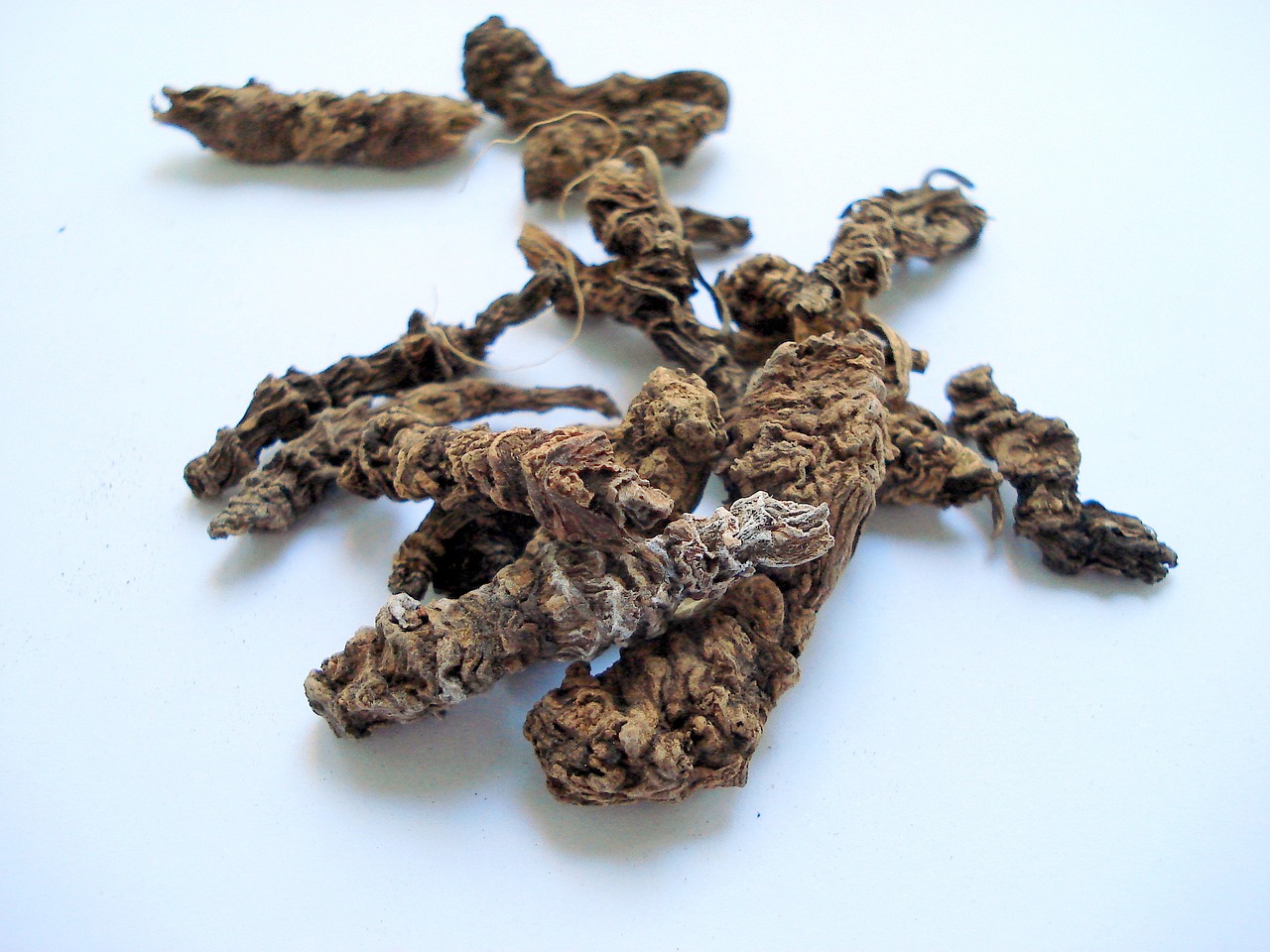
Valerian Root, with its sweetly scented pink or white flowers, doesn’t just look pretty; it’s also a powerhouse when it comes to promoting restful sleep. Originating from Europe and parts of Asia, this herb has been used since ancient Roman and Greek times for its calming and sleep-inducing properties.
So, what makes Valerian Root a sleeping superstar? Its magic lies in the root of the plant, which contains compounds that are believed to interact with the gamma-aminobutyric acid (GABA) neurotransmitter in our brains. GABA helps regulate nerve impulses in your brain and nervous system, playing a key role in reducing anxiety levels and improving sleep quality.
Taking Valerian Root is like telling your body, “Hey, it’s time to relax and get ready for some sweet dreams.” It’s often taken as a supplement or brewed into tea before bed. However, remember, as with any natural remedy. It’s essential to use it responsibly and consult with a healthcare professional if you’re pregnant, nursing, or on any medication.
Chamomile
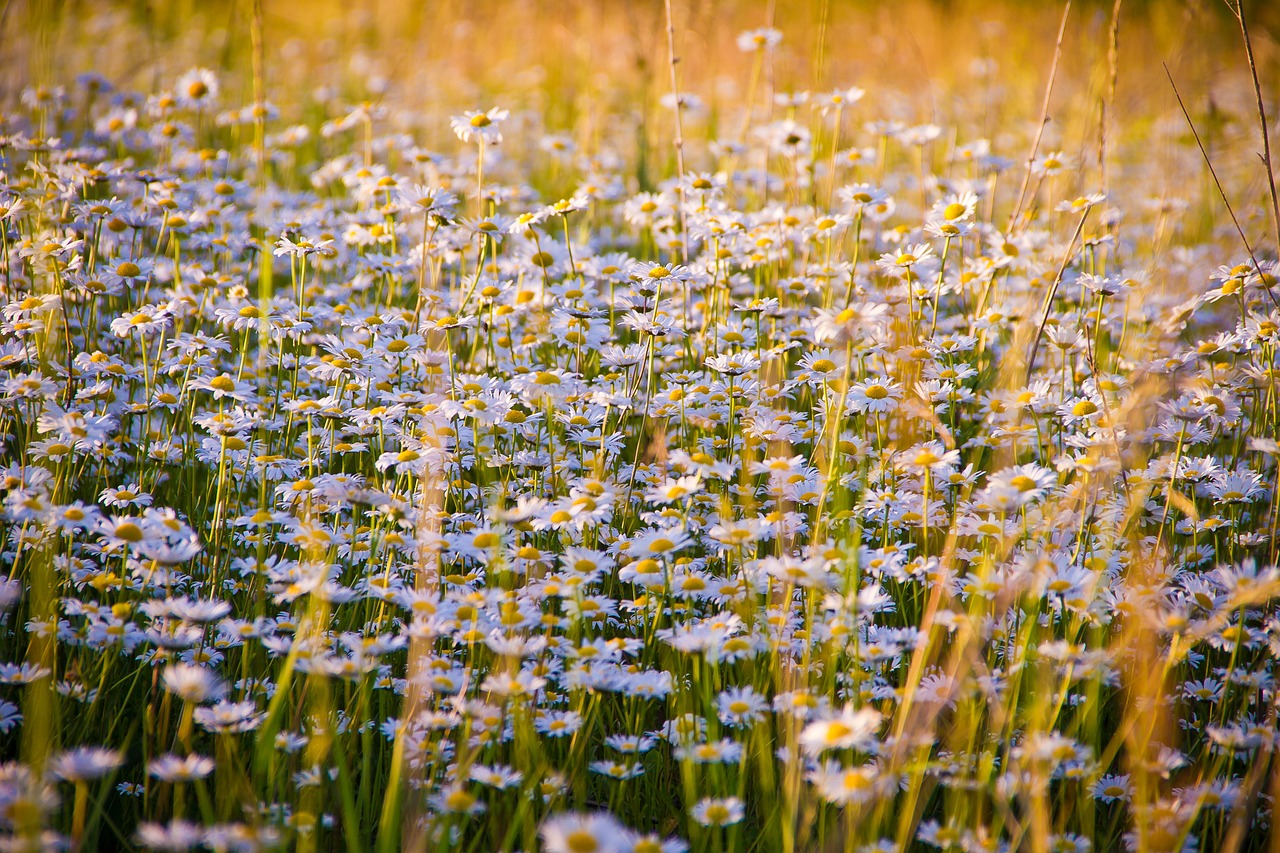
Chamomile is like the comfortable pair of pajamas in the world of herbs: familiar, comforting, and just what you need for a good night’s sleep. Native to Western Europe and North Africa, this plant has been used since ancient times for its calming and anti-inflammatory properties.
This petite bloom is loaded with an antioxidant known as apigenin. Apigenin connects to particular receptors in your brain, which could potentially reduce anxiety and kickstart sleep. It’s nature’s way of tucking you in and whispering, “Sleep tight.”
You’ll often find Chamomile served as a comforting herbal tea—an ideal nightcap to help you wind down after a long day. But remember, not all Chamomile teas are created equal. Look for ones that use the whole flower to ensure you get all those sleep-promoting benefits.
Lavender
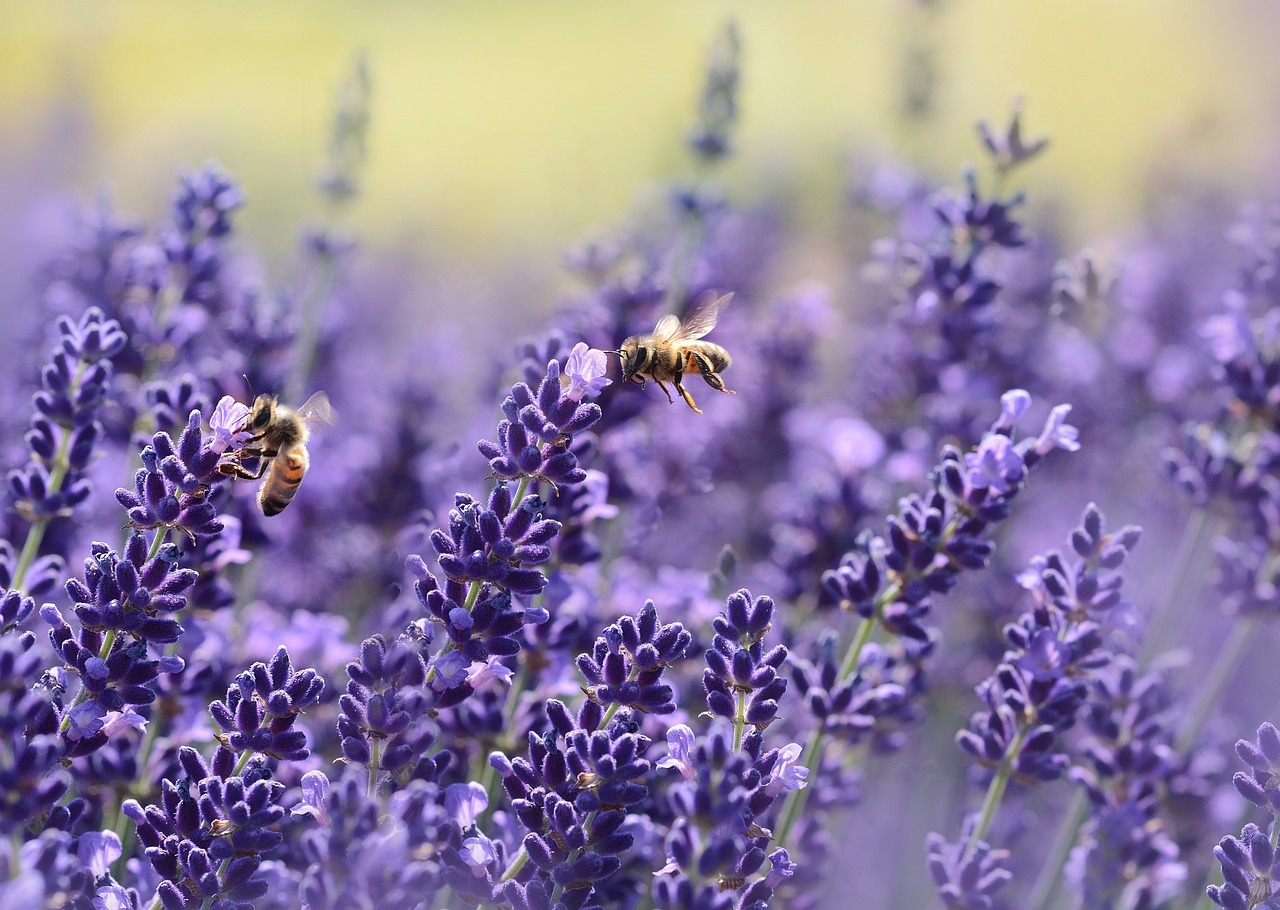
With its iconic purple blooms, lavender has been used for centuries across various cultures for its calming and soothing effects. It’s like nature’s lullaby, whispering to your senses that it’s time to relax and drift into dreamland.
But what makes Lavender such a sleep superstar? It’s all about the aroma. Lavender’s scent is packed with compounds like linalool and linalyl acetate, which studies have shown can have relaxing effects on the body. This can help ease anxiety and improve sleep quality. Simply put, lavender doesn’t just smell good—it’s also good for your sleep!
You can enjoy lavender’s sleep benefits in several ways. Enjoy a cup of Lavender tea, sprinkle a few droplets of Lavender essential oils into your bathwater, or tuck a pouch filled with dried lavender beneath your pillow. However you choose to use it, lavender can be a great addition to your bedtime routine.
Lemon Balm
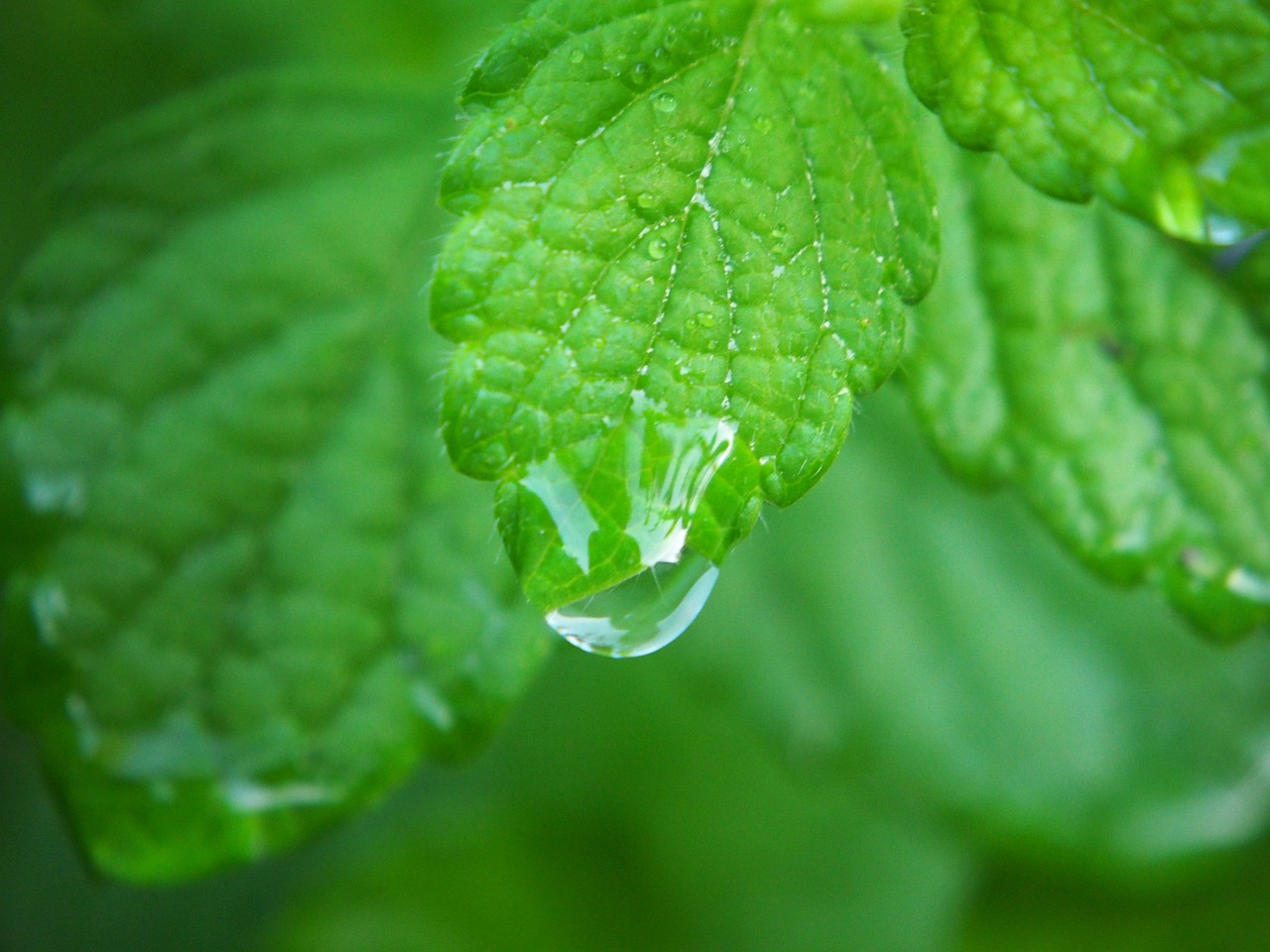
Lemon Balm, also known as Melissa officinalis, is a member of the mint family with a refreshing citrus-like scent. It’s been used since ancient times for its calming effects and is believed to help reduce stress levels and promote better sleep.
So why is Lemon Balm such an effective sleep remedy? This herb contains rosmarinic acid, which can interact with GABA to help reduce anxiety levels and initiate sleep. What’s more, its calming scent is believed to have an additional soothing effect that can prepare your body for a nice slumber.
You can enjoy Lemon Balm in several ways, including tea or essential oil. To make a simple tea, simply steep one teaspoon of dried leaves in boiling water for 5-10 minutes before straining and adding a little honey. Furthermore, you can add a few drops of Lemon Balm essential oil to your evening bath or dilute it with some carrier oil and apply it to your skin as part of a soothing massage before bedtime.
Passionflower
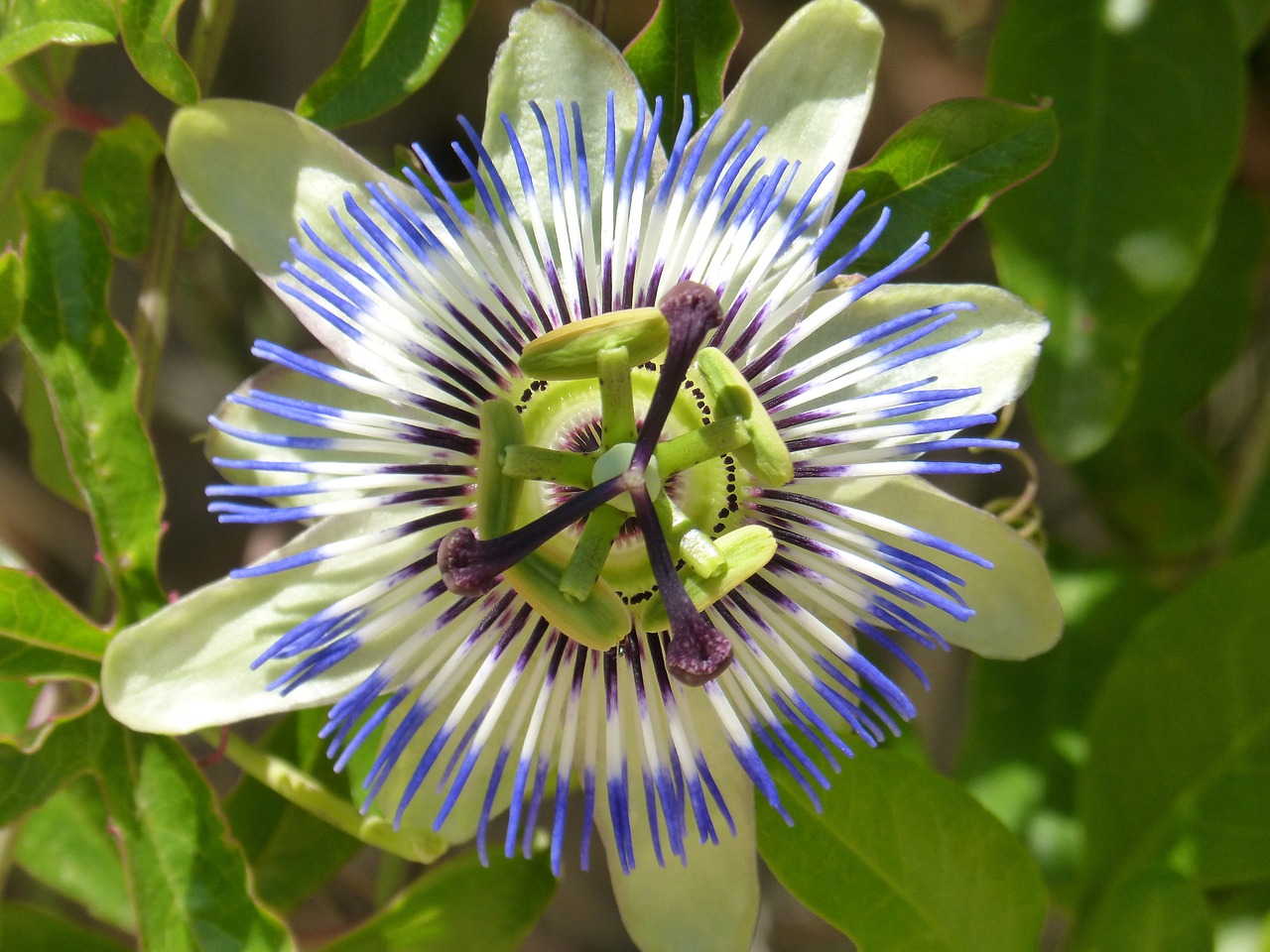
Passionflower, or Passiflora incarnata if we’re being scientific, is native to the southeastern parts of the Americas. This plant contains flavonoids, a type of antioxidant that’s believed to have a calming effect on the brain.
You can enjoy the benefits of Passion Flower in several ways. It’s often brewed into a tea, which you might consider as part of your bedtime routine. Some people also use it in the form of tinctures or capsules. However, as with any natural remedy, remember to consult a healthcare professional before starting any new regimen.
Peppermint
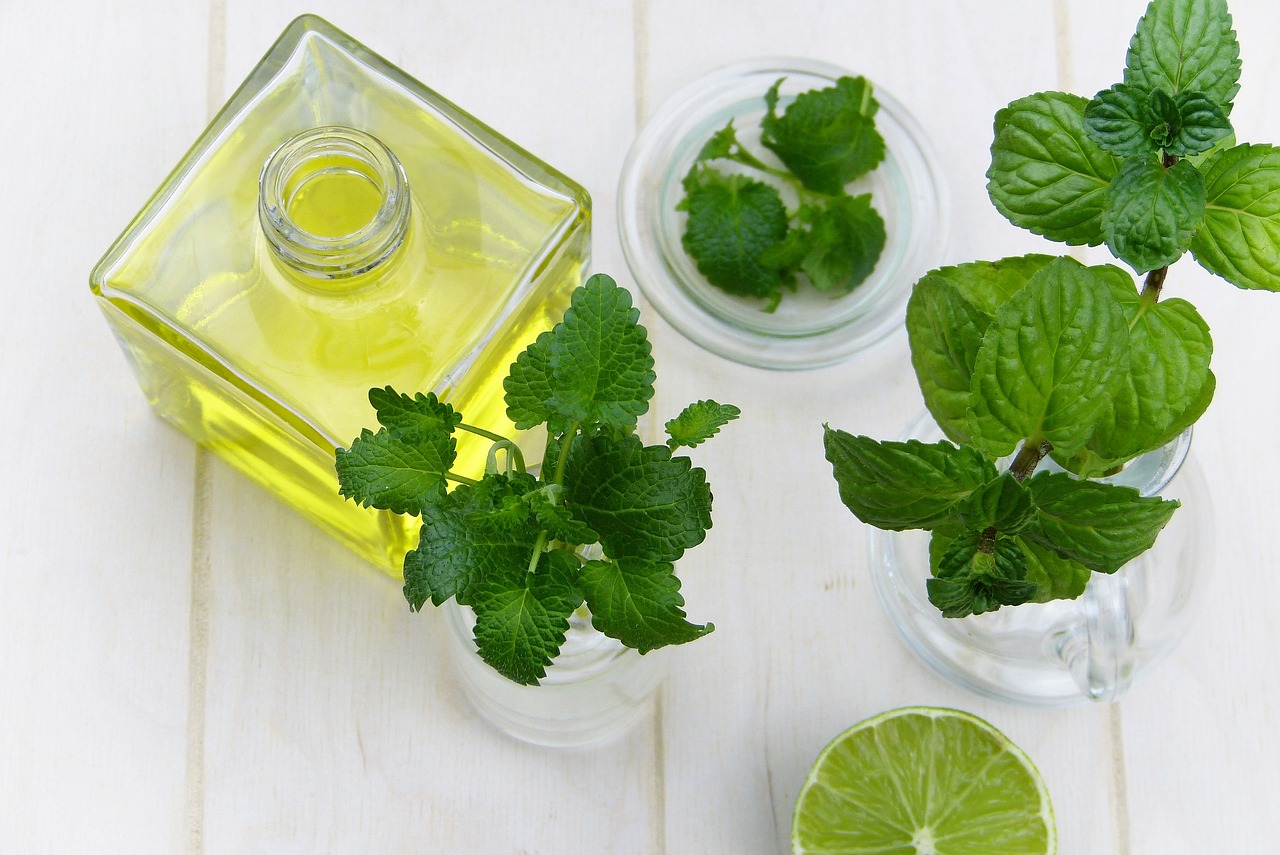
Peppermint contains a compound called menthol, which has natural sedative properties. It is also known to relax muscles and ease tension in the body, making it a great herb to use for a peaceful sleep. Drinking peppermint tea before bed can help you relax and unwind, giving you a restful night’s sleep.
Apart from being great for sleep, Peppermint has many health benefits, including aiding digestion, reducing headaches, and even boosting energy levels. Plus, it’s super easy to grow and care for, making it a perfect addition to your garden.
Magnolia Bark

Derived from the bark of the Magnolia tree, this herb has been used for centuries in traditional Chinese medicine to treat a variety of ailments, including anxiety, stress, and insomnia. Magnolia Bark contains two essential bioactive compounds, magnolol, and honokiol, which have been shown to exhibit various therapeutic effects, including anti-inflammatory and antioxidant properties.
But how does Magnolia Bark specifically help with sleep? Research suggests that the herb can activate and increase the levels of gamma-aminobutyric acid (GABA) in the brain. Furthermore, Magnolia Bark has been shown to improve sleep quality by increasing the time spent in the deep, restorative stages of sleep. This is crucial for overall health and well-being, allowing the body to repair and rejuvenate itself at night.
You can take Magnolia Bark as an extract or tincture or drink it as tea. However, consult your healthcare provider before beginning any new herbal regimen.
Ashwagandha
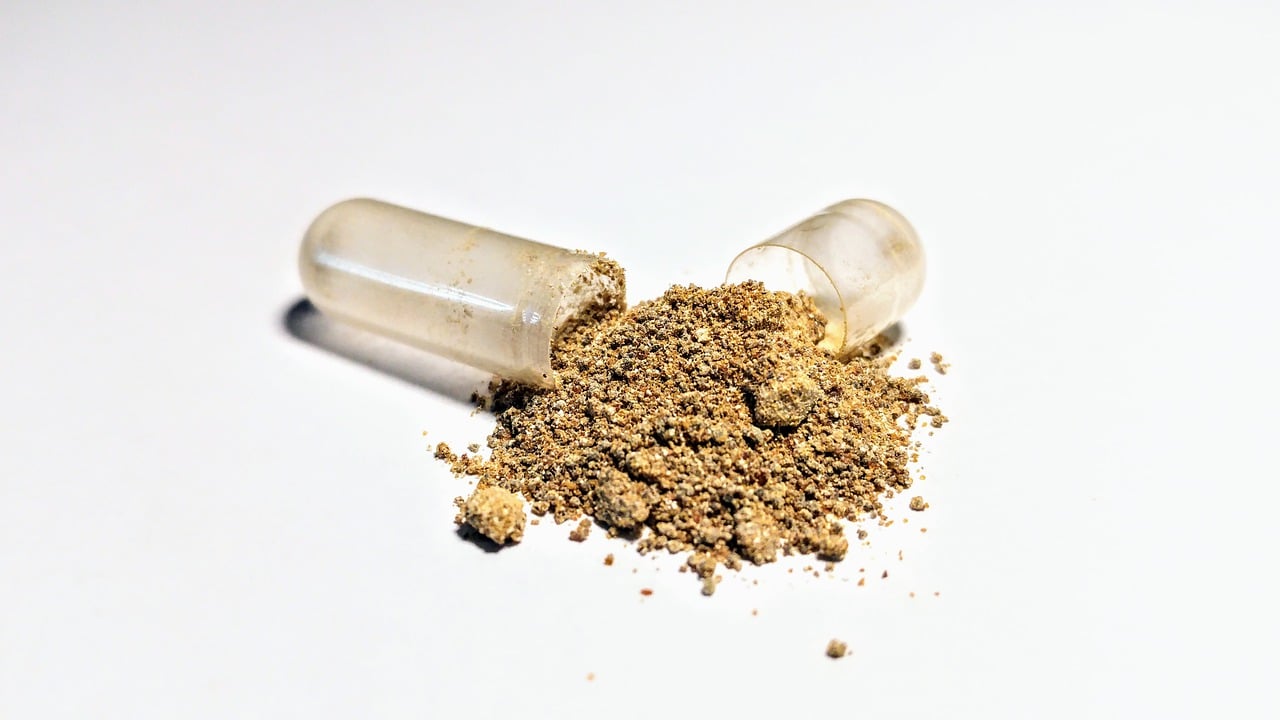
Ashwagandha is an ancient medicinal herb used in Ayurvedic medicine for centuries. It is known for its rejuvenating and stress-reducing properties and can help promote better sleep. Unlike many other sleep aids, Ashwagandha is completely natural and non-addictive, making it a safe and effective choice for those looking to improve their sleep quality.
So, how does Ashwagandha work its magic? Well, it contains compounds called withanolides, which have been shown to have sedative effects on the body. These compounds can help to calm the mind and reduce anxiety, allowing you to fall asleep more easily and sleep more deeply throughout the night.
One of the great things about Ashwagandha is that it can be taken in various forms, including capsules, powder, and tinctures. This means you can choose the best method for you and easily incorporate it into your nightly routine.
Wild Lettuce
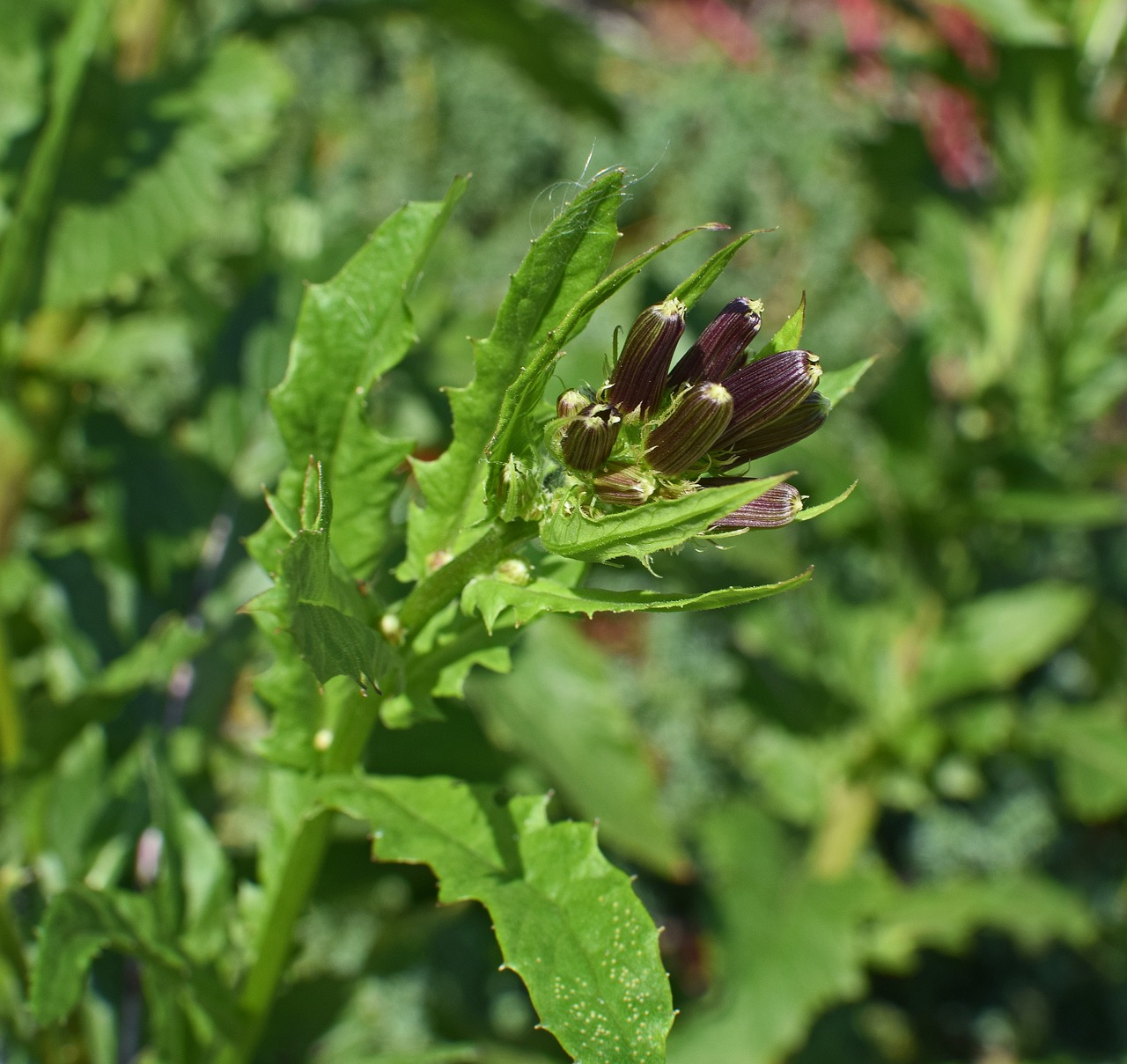
Now, I know what you’re thinking. Lettuce? That bland, leafy green that we put in our salads? That’s not going to help me fall asleep. Well, my skeptical friend, let me tell you that wild lettuce is a completely different species. It has been used for centuries as a natural remedy for insomnia and other sleep disorders.
Its scientific name is Lactuca virosa, and it’s a biennial plant native to Europe and Asia. In ancient times, it was known as the “opium of the poor” due to its sedative properties. The milky sap extracted from this plant’s stem and leaves provides a natural source of lactucarium, which acts as a sedative.
But fear not, wild lettuce is not addictive, nor does it have the same harmful side effects as other sleep aids on the market. It’s a gentle, natural option that won’t leave you feeling groggy the next morning. Plus, it’s easy to find in most health food stores and online.
So, how do you take wild lettuce for better sleep? The most common method is to brew it as a tea. Simply steep one to two teaspoons of dried wild lettuce in boiling water for 10-15 minutes, strain, and drink before bed. You can also find supplements and tinctures that contain wild lettuce for a more concentrated effect.
Ginseng
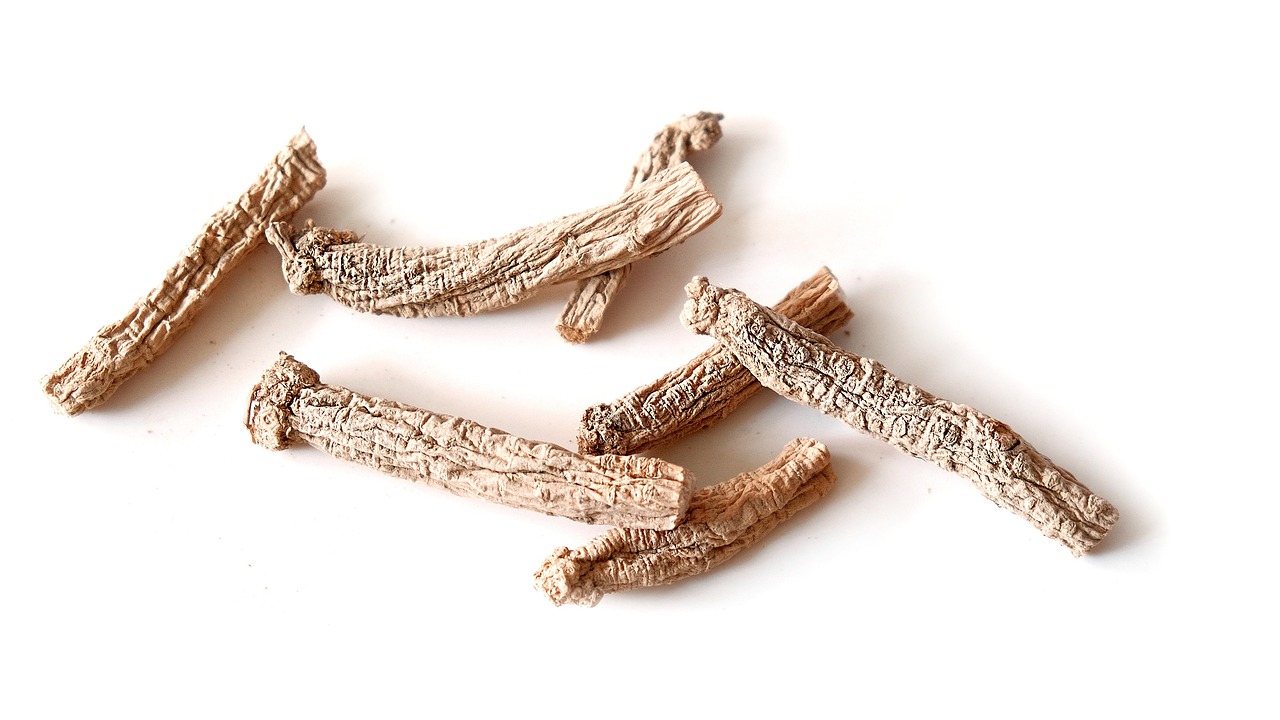
Ginseng is a popular herb in traditional Chinese medicine. It’s been used to treat a variety of health issues for centuries. It’s known for its adaptogenic properties – meaning it helps the body adapt to stress. Plus, it has a calming effect on the nervous system.
When it comes to sleep, ginseng can help regulate your body’s natural sleep cycle, making it easier for you to fall asleep and stay asleep throughout the night. It can also help reduce the amount of time it takes you to fall asleep, which is great for those nights when you just can’t seem to turn your brain off.
One thing to remember is that ginseng is a stimulant. Thus, it’s best to take it earlier in the day rather than right before bed. You can find ginseng in a variety of forms, including supplements, tinctures, and even teas.
Holy Basil
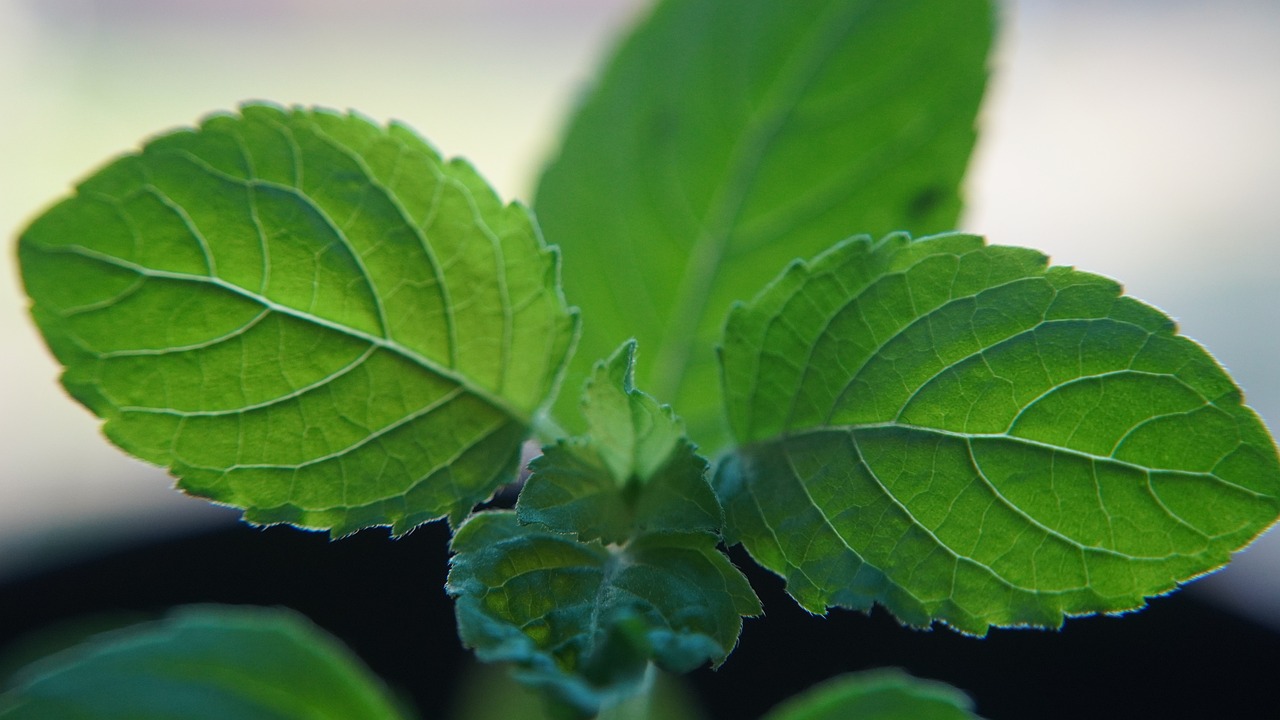
Holy Basil, also known as Tulsi, is a common herb used for centuries in Ayurvedic medicine. Not only is it great for reducing stress and promoting relaxation, but it’s also been shown to be a powerful sleep aid.
Holy Basil contains adaptogens, natural substances that help the body adapt to stress and balance hormones. This is important because high-stress levels and unbalanced hormones can contribute to restless nights. Holy Basil also has sedative properties, which can help calm the mind and prepare the body for sleep.
But that’s not all. Holy Basil is also a natural anti-inflammatory and antioxidant, which means it can help improve overall health and potentially even prevent chronic diseases. And if you struggle with allergies or respiratory issues, Holy Basil can even help with that too.
You can sip on some Tulsi tea before bed or even add some fresh Holy Basil leaves to your evening meal. Not only will it help you get a better night’s rest, but it also has many other health benefits.
St. John’s Wort
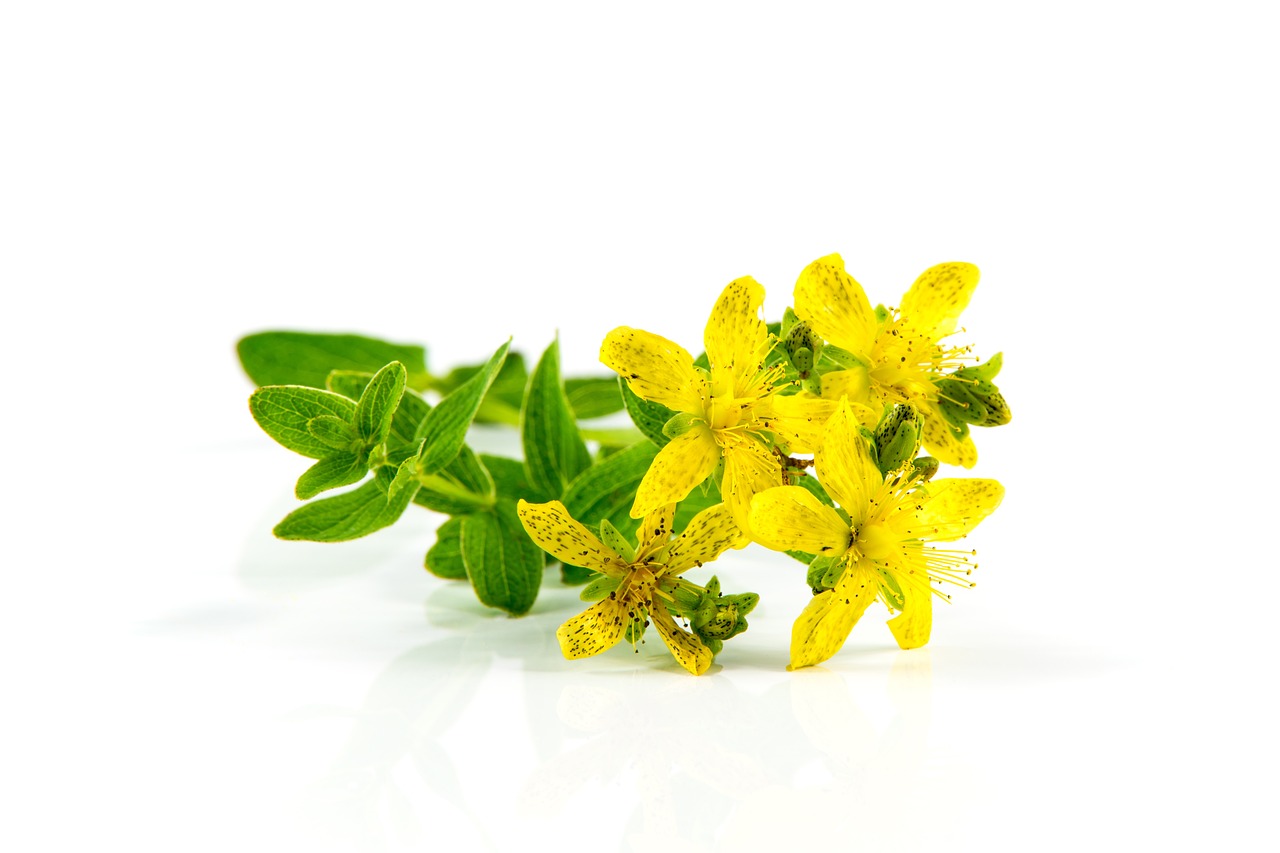
St. John’s Wort is a common herb that promotes good sleep. It’s derived from the flowering plant Hypericum perforatum and has been used in natural medicine for centuries. Its natural compounds are thought to help improve mood and reduce anxiety, which can significantly impact our ability to fall and stay asleep.
One of the key benefits of St. John’s Wort is that it doesn’t cause the grogginess or “hangover” feeling that often accompanies traditional sleeping pills. Instead, it encourages a more natural, restful sleep that leaves you feeling refreshed and energized in the morning.
Studies have also suggested that St. John’s Wort may effectively treat a range of sleep disorders, including insomnia and sleep apnea. It’s thought that the herb’s mood-improving properties can help to regulate the sleep-wake cycle, allowing for more consistent and restful sleep.
When it comes to taking St. John’s Wort, it’s important to do so under the guidance of a healthcare professional. The herb can interact with certain medications. Therefore, it’s important to talk with your doctor or naturopath before starting any new supplements.
Hops
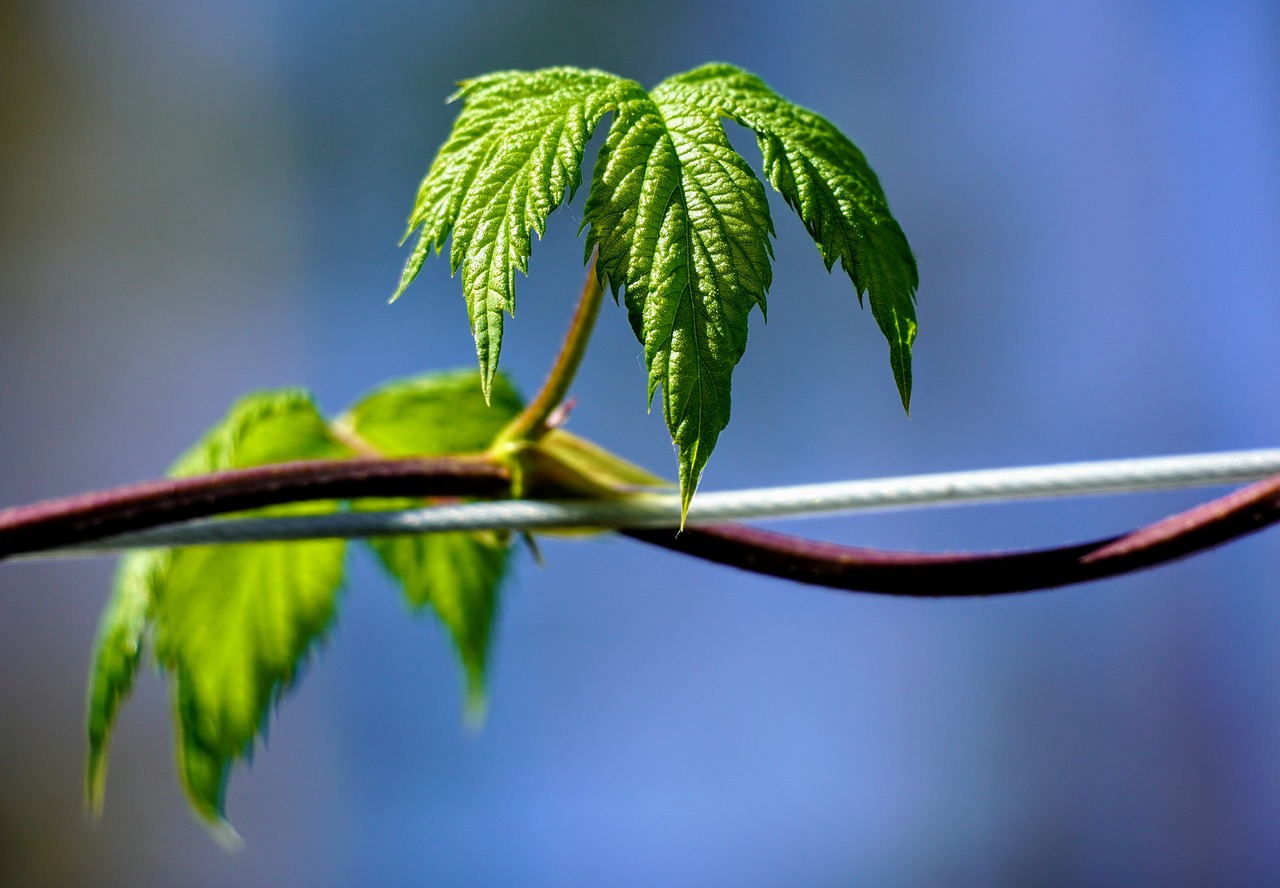
One common herb for good sleep is hops. Yes, the same hops that are used in beer-making can actually help you get a good night’s sleep!
Hops contain a compound called dimethylvinyl carbinol, which has a mild sedative effect on the body. But that’s not all. Hops also contain a flavonoid called xanthohumol, which has been shown to have anti-inflammatory and antioxidant properties.
So, how can you incorporate hops into your bedtime routine? You can find hops in various forms, such as teas, tinctures, and supplements. Hops pillow sprays have also become popular in recent years. It allows you to enjoy the herb’s relaxing aroma while you sleep.
However, it’s important to note that hops should be used in moderation. While hops are generally safe, excessive use can lead to side effects such as dizziness and gastrointestinal upset.
California Poppy
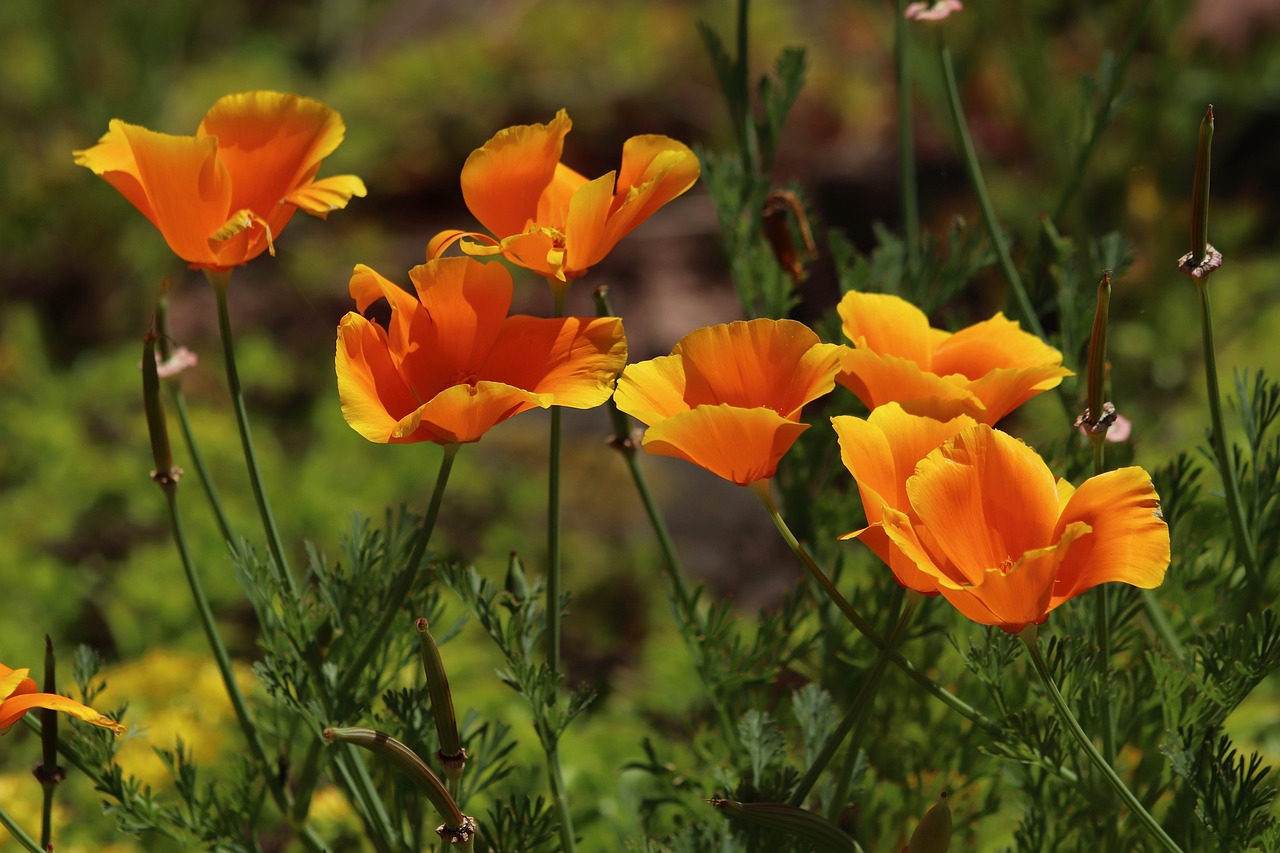
California Poppy is a flowering plant that’s native to the West Coast of North America. It’s been used for medicinal purposes for thousands of years, particularly by Native American tribes. The plant contains chemicals that have a calming effect on the body, which makes it an excellent herb for promoting good sleep.
Using California Poppy couldn’t be easier. You can purchase it in various forms, such as tea bags, tinctures, or capsules. Simply brew some tea or take a few drops of tincture before bedtime, and you should start feeling the effects within 30 minutes. The herb will help you relax, reduce anxiety, and get a better quality of sleep overall.
One of the great things about using California Poppy is that it’s much safer than prescription sleeping pills. It won’t leave you feeling groggy or disoriented in the morning, and you won’t develop a dependence on it over time. Plus, it’s much more affordable than other sleep aids and is readily available at most health food stores.
Safety Considerations and Potential Side Effects
While the world of herbal sleep remedies can seem like a natural, harmless way to catch those elusive Z’s, it’s crucial to remember that herbs are potent substances that should be used with care. After all, even roses have thorns, right?
Firstly, just because something is “natural” doesn’t automatically mean it’s safe for everyone. Each herb comes with its own set of potential side effects. For example, while Valerian Root is generally considered safe for short-term use, it may cause some people headaches, dizziness, or stomach problems. Similarly, Chamomile is usually well-tolerated. However, it can cause allergic reactions in individuals who are sensitive to plants in the daisy family.
Secondly, it’s important to remember that herbs can interact with other medications. If you’re currently taking any medication, especially sedatives or antidepressants, it’s essential to consult your healthcare provider before adding an herbal remedy to your routine.
Also, certain herbs may not be suitable for pregnant or nursing women, children, or people with specific health conditions. Always do your research and err on the side of caution.
When it comes to dosage, more isn’t always better. Start with the lowest recommended dose and see how your body reacts before deciding to increase the amount.
And lastly, quality matters! Not all herbal products are created equal. Look for reputable brands that follow good manufacturing practices and provide transparency about their ingredients.
Remember, these herbal sleep aids are here to help, not harm. By being mindful of these safety considerations, you can enjoy the benefits of these natural remedies safely and effectively.
Frequently Asked Questions
Q: Can I use herbal medicine alongside my regular sleep medication?
Yes, you can! However, it’s important to ensure you do so under the guidance of a healthcare professional. While herbs can be beneficial in promoting relaxation and improving sleep quality, they also have the potential to interact with other medications or cause side effects. That being said, many people have successfully used a combination of traditional medicine and natural remedies to address their insomnia or other sleep issues. So, if you’re curious about trying herbs alongside your sleep medication, talk to your doctor or a licensed herbalist to get personalized advice and recommendations.
Q: What other natural herbs can I take for sleep?
Have you tried tart cherry? This natural ingredient has long been known for its sleep-inducing properties, thanks to its high melatonin levels. In fact, studies have shown that tart cherry juice can help improve both the quality and duration of sleep. So why not give it a try? Sip on some tart cherry juice before bed, or incorporate tart cherries into your evening snack.
Q: Are herbal tinctures for sleep better than capsules?
It really depends on your preferences. Some people prefer tinctures, as the liquid formula is absorbed faster and more efficiently than capsules. But if you don’t like the taste of tinctures, then capsules may be a better option for you. Ultimately, it comes down to what works best for you!
Q: Can I take herbal medicine in the morning?
It’s generally recommended that you take herbs to sleep an hour or two before bed. This will give your body enough time to process the active ingredients and start feeling the calming effects. However, if you prefer to take your herbal remedy in the morning, it might work just as well — especially if you’re dealing with jet lag or another issue that affects your circadian rhythm. Just be sure to consult with your healthcare provider beforehand, as some herbs can have stimulating effects that may make it harder for you to fall asleep at night.
Q: Are there spices for sleep?
Absolutely! Certain spices, like cinnamon, nutmeg, and cardamom, are known to have a calming effect on the body. And if you’re looking for an enjoyable way to get your herbal fix in the evening, why not try some chamomile tea or ginger-infused honey? These delicious treats will help promote relaxation and better sleep and give you a tasty treat to look forward to at the end of the night.
Final Words
It’s clear that nature has generously provided us with an array of botanical allies to help us achieve that much-needed rest. From the calming scent of Lavender to the soothing taste of Chamomile tea and from the potent Valerian Root to the intriguing Passionflower, these herbs each offer a unique path to a peaceful slumber. It’s like Mother Nature herself is singing us a lullaby.
But as we embrace the world of herbal sleep remedies, let’s not forget to tread wisely. Remember, herbs are powerful, and they deserve our respect. Always be mindful of potential side effects, interactions, and individual sensitivities. Consult with a healthcare professional if needed, and always prioritize quality when choosing herbal products. Here’s to exploring the natural world of sleep aids responsibly and to many nights of sweet, restful dreams.


